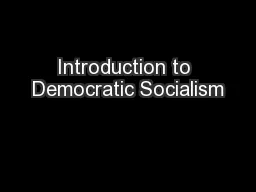PPT-“ 2018 Elections: Dialogue for Sustainable Democratic Elections in Zimbabwe
Author : tatiana-dople | Published Date : 2018-03-20
Constitutionalism and Legal framework of election in Zimbabwe Identifying key gaps Ice Breaking reflection D emocracy without credible free and fair elections
Presentation Embed Code
Download Presentation
Download Presentation The PPT/PDF document "“ 2018 Elections: Dialogue for Sustai..." is the property of its rightful owner. Permission is granted to download and print the materials on this website for personal, non-commercial use only, and to display it on your personal computer provided you do not modify the materials and that you retain all copyright notices contained in the materials. By downloading content from our website, you accept the terms of this agreement.
“ 2018 Elections: Dialogue for Sustainable Democratic Elections in Zimbabwe: Transcript
Download Rules Of Document
"“ 2018 Elections: Dialogue for Sustainable Democratic Elections in Zimbabwe"The content belongs to its owner. You may download and print it for personal use, without modification, and keep all copyright notices. By downloading, you agree to these terms.
Related Documents














